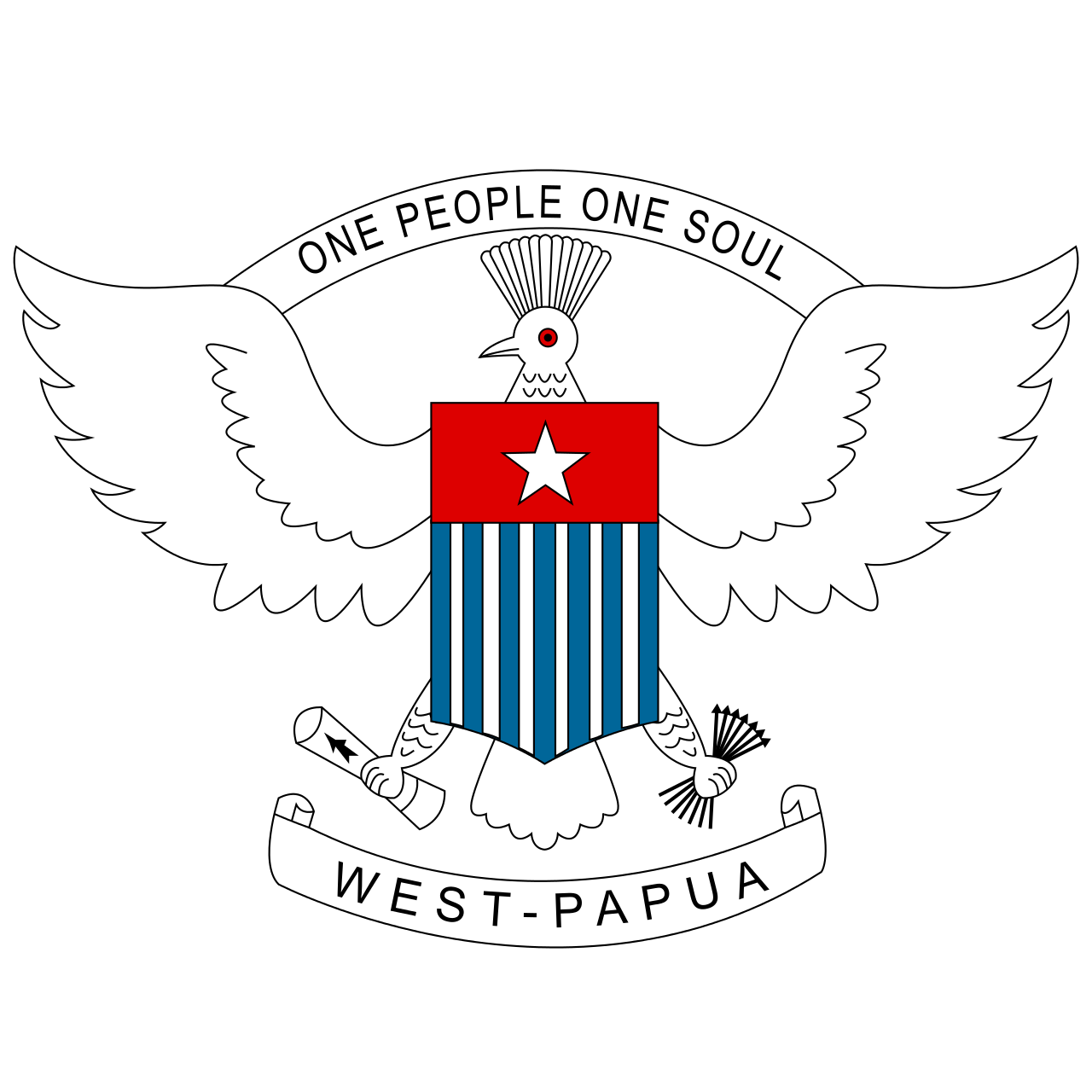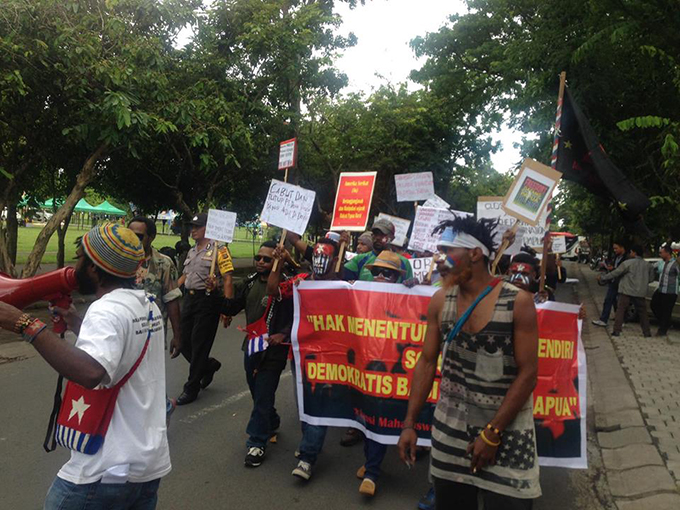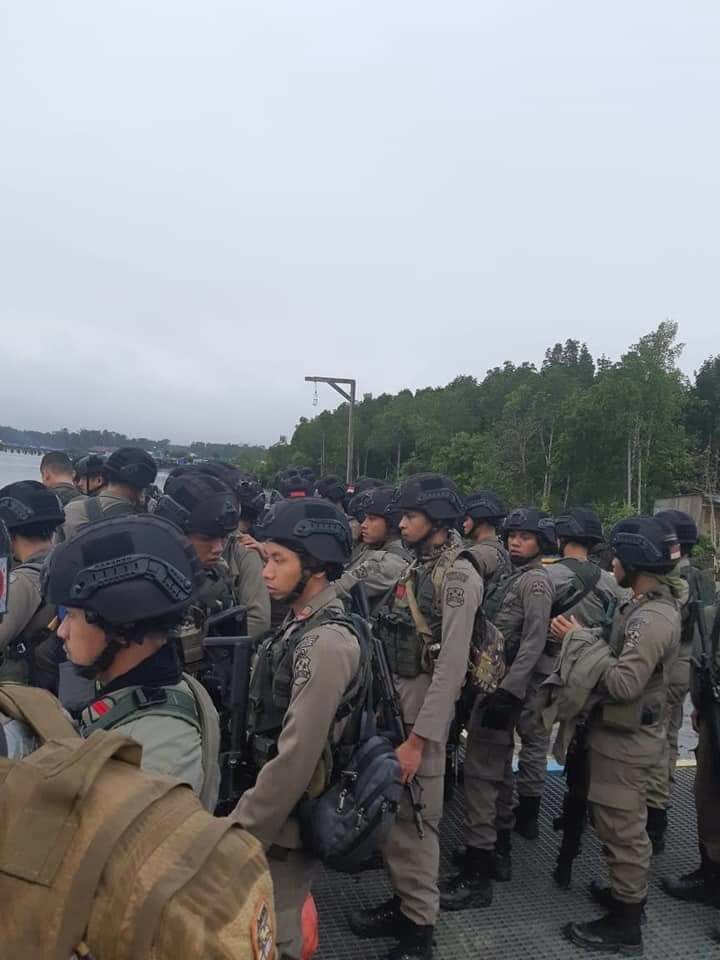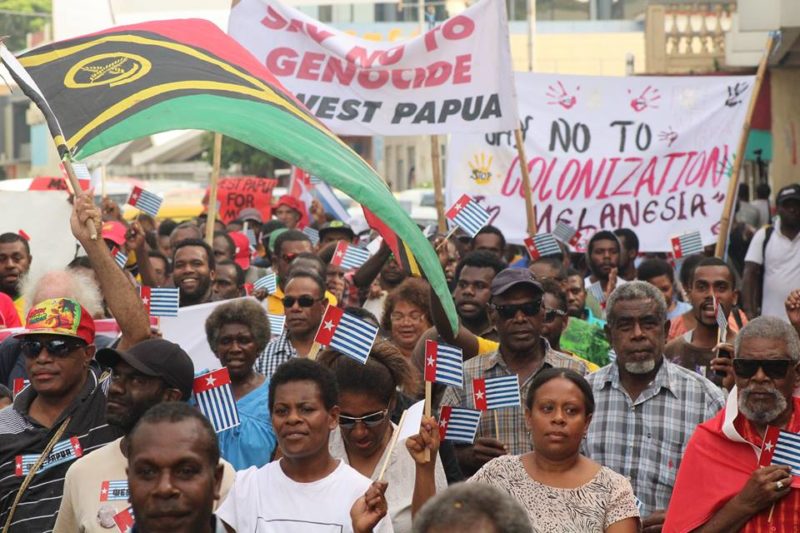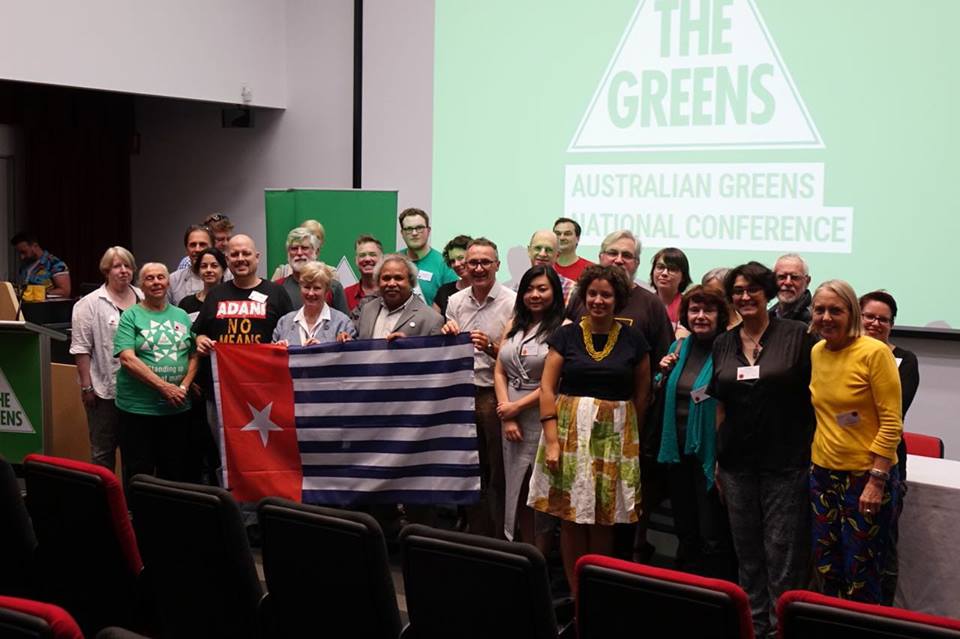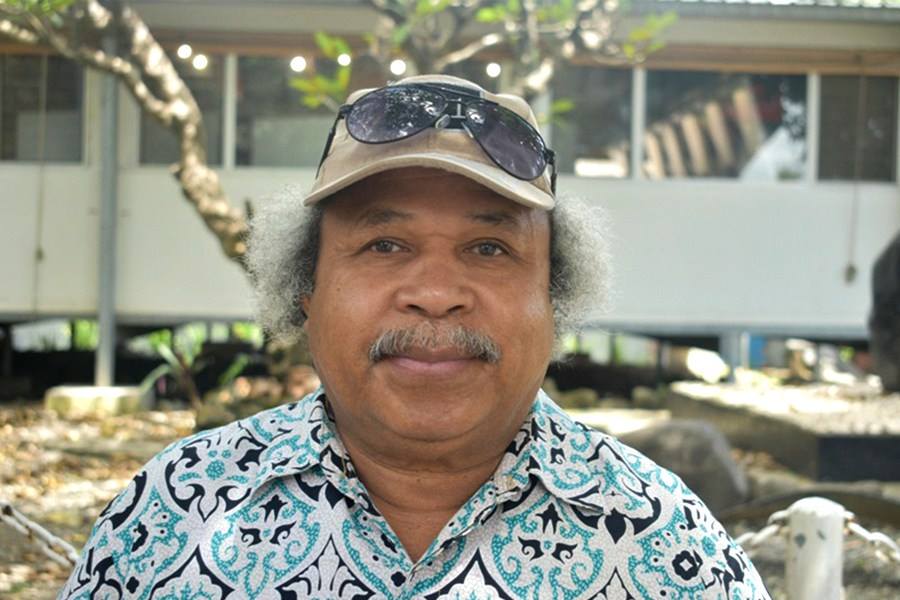West Papua National Army is constitutionally obliged to defend the territory and people it is responsible for, even as the Indonesian State continues to hunt them—and Nduga civilians—down in the high-mountain forest.
In preparations for the election of a governor, the Indonesian government directed its regency-based military, police and intelligence to force the civilians in the small isolated regency of Nduga to vote. Consequently, on 25 June 2018, West Papua’s National Liberation Army (TPN PB OPM) shot at a Twin Otter plane carrying 18 BRIMOB commandoes from Wamena and three transmigrasi from Sulawesi after it landed in Kenyam, injuring Pilot Ahmad Khamil.1
Fifteen minutes later, seventy Indonesian security forces engaged in a ninety-minute shoot-out with the West Papuan Army during which the transmigrants (one of them armed) were killed.2 Three days later Egianus Kogoya, Commander of the TPN PB OPM operation, raised West Papua’s Morning Star flag in front of the Nduga Parliament building signalling the people’s continuing refusal to vote.
In response, the Indonesian government deployed anti-terrorist commandos to support its local forces, and during the subsequent battle four Indonesian commandoes were killed. Enraged, the Indonesian security forces turned on the civilians who fled to the forest. Their shortage of food and medicine eventually forced Nduga Regent Yarius Gwijangge to invite the Indonesian military and police to a peace ceremony. The invitation was rejected, unless Mr Gwijangge organised for the TPN PB OPM to surrender.
Investigators must first ask why the Indonesian State is still—after sixty years of occupation and twenty years of ‘democracy’—waging war on a people it considers to be its own citizens? Why in this isolated lowly populated regency of 100, 000 is there 1 highly trained commando for every 97 civilians?3 And why is it necessary for so many more during the fairly simple process of updating the voter registration?
Investigators must then ask why West Papua’s National Liberation Army (TPN PB OPM) wouldn’t take on foreign military forces in their territory? For it is, like any national defence force, constitutionally obliged to defend the sovereignty of the territory and the people it is responsible for, and it has fulfilled that duty since 1963 when the UN passed the administration of West Papua to Indonesia. According to the secular law of armed conflict war may be undertaken as a means of redressing wrongs inflicted on innocents, or to force an aggressor to cease and desist from inflicting harm, especially when negotiation and other means short of war have failed.
Jacob Rumbiak,
Spokesperson of ULMWP
1 Kenyam, the so-called capital of Nduga Regency, is situated in the Lorentz National Park south of the Central Cordillera. Wamena, the capital of Puncak Jaya Regency is situated in the Baliem Valley in the middle of the Central Cordillera.
2 Henrik Sattu Kola (35 years), his wife Margaretha Pali (20 years), and Zaenal Abidin (28 years).
3 During the controversial partition of Melanesian West Papua into two provinces (‘West Papua’ and ‘Papua’) President Yudhoyono also tripled the number of regencies (from 12 to 40). This “enabled military organization in the new provinces that mirrored the civilian administration, thereby increasing the deployment of the security forces in the territory as a whole” (National Defense Council 2003 memo cited by Richard Chauvel in Australia, Indonesia and the Papuan crises Nautilus Institute for Security and Sustainability 2006). It effectively tripled the number of security personnel and infrastructure, because under Indonesian administrative law, each regency (not each province is automatically assigned 1 Army battalion, 1 Police company, 1 BRIMOB company, 1 Airforce company (and in coastal regencies 1 Naval Company as well).
